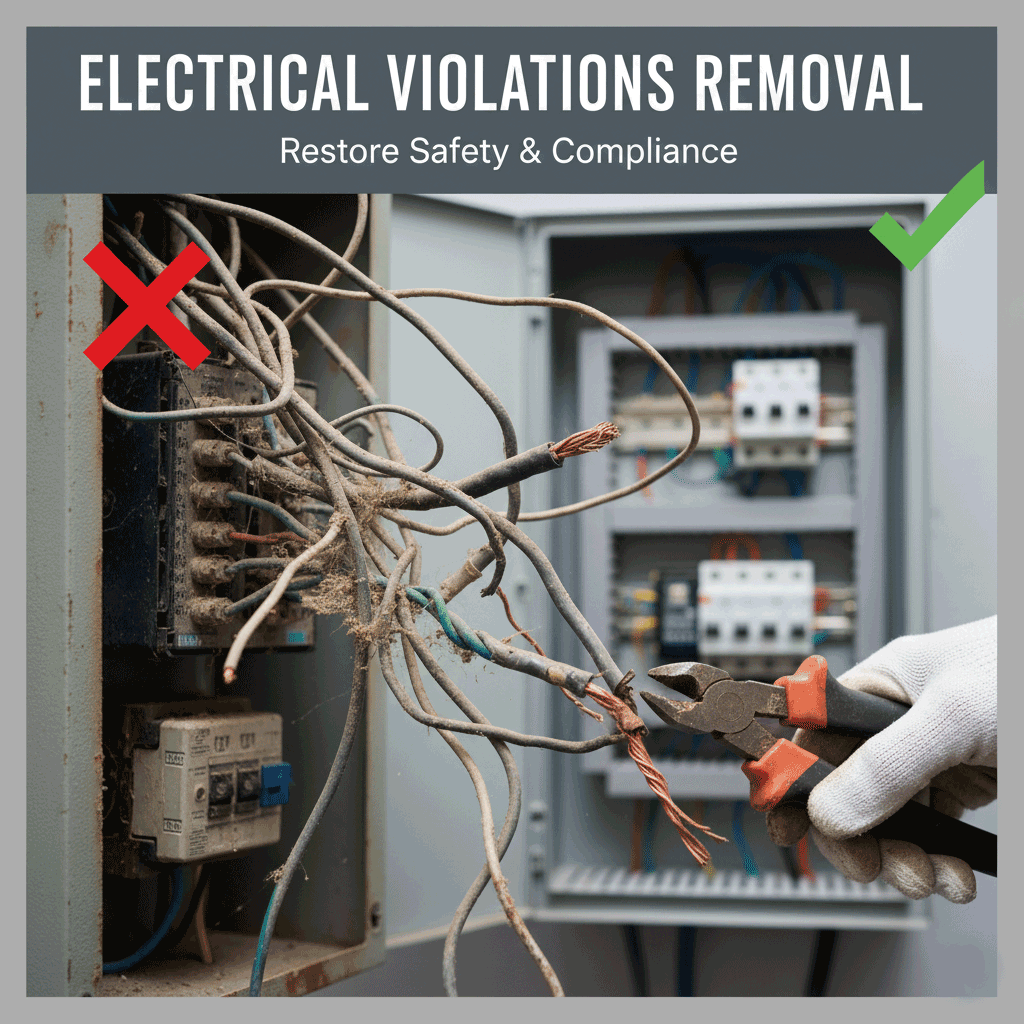What Is an Electrical Violation?
An electrical violation is a notice issued by the NYC Department of Buildings (DOB) when electrical installations fail to meet code or pose safety hazards. Common causes include unpermitted work, improper grounding, overloaded circuits, or exposed wiring.
Why Electrical Violations Matter
- Safety hazards: Faulty wiring can cause shocks or fires.
- Financial penalties: Fines and stop-work orders increase costs.
- Insurance & legal risk: Claims can be denied for known violations.
- Occupancy & sales issues: Violations delay permits and closings.
Common Electrical Violations
| Violation Type | Common Problems | Why It Matters |
|---|---|---|
| Unpermitted electrical work | Wiring installed without DOB permits | Unsafe and cannot be legalized without permit work |
| Improper grounding / bonding | Loose or missing ground wires | Increases shock and damage risk |
| Overloaded circuits | Too many devices on one breaker | Fire hazard due to overheating |
| Exposed junctions / missing covers | Open boxes or splices | Immediate shock hazard |
| Missing GFCI / AFCI protection | No required safety devices | Higher risk of shock or fire |
Steps to Remove / Correct Electrical Violations
1. Review the Notice
Read the violation carefully to identify required corrections.
2. Hire Licensed Professionals
A licensed electrician should assess and plan the correction.
3. Pull Permits (if needed)
Apply for DOB permits for any corrective work.
4. Perform Corrective Work
Fix wiring, grounding, and safety issues per NYC Electrical Code.
5. Submit Certificate of Correction
File the COC with DOB to officially close the violation.
Tips to Avoid Future Violations
- Always hire licensed electricians and obtain proper permits.
- Keep records of permits, inspections, and invoices.
- Schedule periodic inspections for older properties.
- Stay updated with NYC Electrical Code changes.
Need Help Removing an Electrical Violation?
We handle everything from evaluation and permit filing to corrective work and representation at ECB/OATH hearings.
